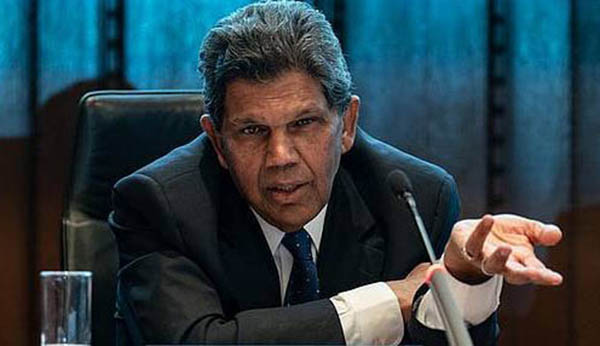In a previous essay on the right to a clean, healthy and sustainable environment, I suggested that the opportunity exists to build a New Guyana on consensual policy foundations. The recent adoption of a UN General Assembly resolution on the right to a safe environment offered a policy framework on which all parties in Guyana should be able to agree. If we don’t protect the environment, humanity will be doomed.
A country that has been fractured before, and since, its independence in 1966, needs a consensual framework of policies, principles and norms that can unite all strands of the society. At the present time, Guyana has a youthful and learned President in Dr Irfaan Ali, and a learned new Leader of the Opposition who used to be a Foreign Service Officer. International principles elaborated at the United Nations offer consensual policy grounds for these statesmen to build on in the quest for a New Guyana.
In this essay, I submit that implementation of the right to development, as recognized by the UN, can be a second policy foundation to build the New Guyana. I am aware that we have in Guyana some of the world’s leading development economists, who have been presenting their views on the way forward in the Dear Land. In presenting the UN Declaration on the Right to Development here, I am recalling consensual international policies, principles and norms in the hope that the country as a whole can rally behind them, and build the New Guyana on their foundations. Building a new country out of disparate strands and a contested history requires shared policy foundations. The right to development offers such a foundation.
The UN Declaration on the Right to Development was championed by developing countries and adopted by the UN General Assembly on 4 December, 1986. The international aspects of its implementation remain under active consideration at the UN Human Rights Council. More attention needs to be given to national strategies for the implementation of the right to development. Each country should have a National Policy Statement on Implementation of the Right to Development. Guyana should have such a policy statement.
The right to development, the UN General Assembly declared, is an inalienable human right by virtue of which every human person and all peoples are entitled to participate in, contribute to, and enjoy economic, social, cultural and political development, and in which all human rights and fundamental freedoms can be fully realized.
The human person is the central subject of development and should be the active participant and beneficiary of the right to development. States should encourage popular participation in all spheres as an important factor in development and in the full realization of all human rights.
States have the right and the duty to formulate appropriate national development policies that aim at the constant improvement of the well-being of the entire population and of all individuals, on the basis of their active, free and meaningful participation in development, and in the fair distribution of the benefits resulting therefrom.
States have the duty to take steps to formulate development policies with a view to facilitating the full realization of the right to development. All human rights and fundamental freedoms are indivisible and interdependent. Equal attention and urgent consideration should be given to the implementation, promotion and protection of civil, political, economic, social and cultural rights.
States should undertake, at the national level, all necessary measures for the realization of the right to development and must ensure, among other things, equality of opportunity for all in their access to basic resources, education, health services, food, housing, employment and the fair distribution of income.
Effective measures should be undertaken to ensure that women have an active role in the development process. Appropriate economic and social reforms should be carried out with a view to eradicating all social injustices.
The foregoing statements all come directly from the UN Declaration on the Right to Development. The right to development is also enshrined in the African Charter on Human and Peoples’ Rights, and has been the subject of dynamic interpretative statements by the African Commission on Human and Peoples’ Rights and by the Inter-American Commission and Court of Human Rights. To put it simply, Governments have a legal duty to act positively for the implementation of the right to development within their respective countries. Guyana has such a legal duty.
Several elements of the declaration have particular relevance for Guyana: First, is there a National Policy Statement on Implementation of the Right to Development? Second, is there on-going deliberation on the participation of everyone in the development process? Third, is there fair distribution of the fruits of development? Fourth, does everyone enjoy equal opportunity in their access to basic resources, education, health services, food, housing, employment and the fair distribution of income? Fifth, are women given an active role in the development process? Sixth, are appropriate economic and social reforms being carried out with a view to eradicating all social injustices? Seventh, is urgent consideration being given to dealing with the plight of the poorest and the disadvantaged?
It would serve Guyana well to address, and to be seen to be addressing, these issues. Might one suggest an inter-party dialogue to address such aspects of implementation of the right to development? A New Guyana beckons: on the basis of consensual policy foundations on issues such as the right to a safe environment, and the right to development. Rise, anew, Dear Land of Guyana!




